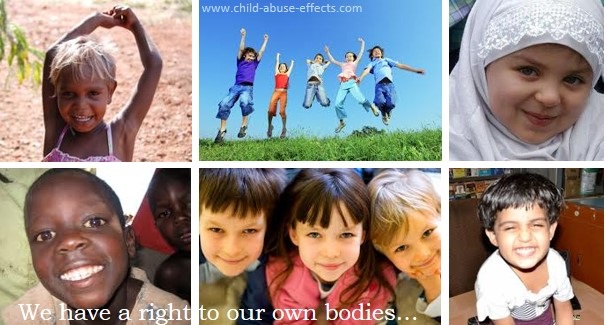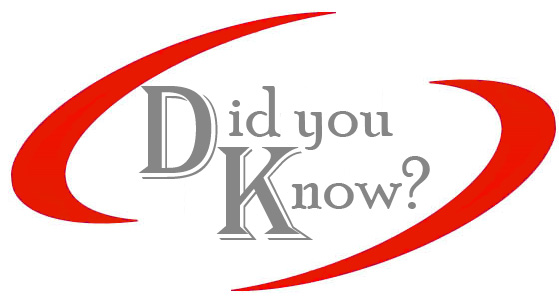Sexual Abuse Effects

Sexual abuse effects on children and youth can be evident in emotional,
physical and behavioural ways. These effects can be just as devastating
whether there was only one occurrence or there were repeated
occurrences. Sexual abuse cannot be compared, because each abuse
experience is unique.
Vulnerability Factors:
|
Children are vulnerable to sexual abuse because of their age, size and innocence. When a child or youth is molested, she/he learns that adults cannot be trusted for care and protection: well-being is disregarded, and there is a lack of support and protection. These lead to grief, depression, extreme dependency, inability to judge trustworthiness in others, mistrust, anger and hostility. And as if all that isn't enough, children's bodies often respond to the sexual abuse, bringing on shame and guilt. |
|
Points to consider:
» Children/youth are unable to protect themselves and stop the abuse.
» Children/youth are susceptible to force.
» Children/youth are susceptible to the use of trickery by offenders.
» Often times, children/youth have no control over their own bodies.
» All too often, children/youth are unable to make others believe them.
The above factors lead to:
» anxiety
» fear
» shame
» a sense of inadequacy
» the need to control situations and others
» a perception of self as victim
» identification with the aggressor
Factors That Influence Sexual Abuse Effects
Miraculously, not all children or youth molestation victims display signs that something is wrong.
 |
Between 21% and 36% of sexually abused children will display few or no symptoms (Oates, O'Toole, Lynch, Stern & Cooney, 19941). |
Why do some victims display a multitude of emotional and behavioural effects, while others display few or none? In spite of few or no outward symptoms, child and youth victims do suffer emotionally. These emotional effects come in varying degrees, depending on the following six factors:
 |
The nature of the relationship between the victim and the offender: the closer the emotional relationship, the greater the emotional trauma. |
 |
The age of the child when the abuse began and the
duration of the sexual relationship: an ongoing sexual
relationship with repeated contacts is generally more traumatic and
usually produces more sexual abuse effects than a single contact. |
 |
The type of sexual activity the victim is exposed to: sexual acts involving strictly non-contact sexual abuse appears less traumatic than sexual acts that involve contact. It is important to note, however, that trauma and the sexual abuse effects are still very real when any type of sexual abuse occurs. |
 | For an excellent discussion written by Colette Dowling, M.S.W. check out sexual abuse in school girls. Colette is an internationally renown lecturer and author of eight books, including her best-seller The Cinderella Complex, which has been in print for over 25 years. |
 | The degree of physical aggression directed at the victim: violence adds to the trauma of the abuse. Being physically abused, having a mother who is mentally ill, not having someone to confide in, and being socially isolated are significant predictors for childhood sexual abuse (Fleming, Mullen & Bammer, 19972). |
 |
The response the victim receives when she/he discloses the abuse: healing is apparent when a disclosure is met with compassion and is followed with effective intervention; if the victim is met with skepticism and accusations, anger, or no response at all when she/he discloses, the sexual abuse effects are compounded. |
 |
The availability of a supportive person in the victim's life: a caring, loving, nurturing, and listening person in the victim's life lessens the trauma; a lack of a supportive person intensifies the abuse and leaves the victim feeling even more lonely, helpless, and unworthy. |
Emotional and Physical Sexual Abuse Effects:
Molested children suffer many losses, including:
» self-esteem and self-worth
» trust
» childhood, including the opportunity to play and learn
» the opportunity
» intimacy
» control over his/her body
» normal loving and nurturing
» safety and security
Behavioural Sexual Abuse Effects:
» nightmares, phobias, & regressive behaviours: thumb-sucking & bed-wetting
» learning problems
» clinging and smothering
» insecurity, which put the child at risk for further abuse and exploitation
» psychosomatic complaints such as stomachaches and headaches
» precocious
sexual activity--a young child knows more than they should about sexual
activity; child may exhibit seductive behaviour
 |
17% of abused children exhibit age inappropriate sexual behaviour (Trocme & Wolfe, 2001, p.283). |
 |
Of the sexual abuse effects exhibited, sexualized behaviour is the most consistent indicator of sexual abuse (Cavanagh Johnson et. al., 1995, pp.50-514). |
» with young children, a preoccupation with sexual organs of self, parents and others--often this shows itself in language and art
» aggression and bullying behaviours
 |
14% of abused children exhibit behaviour problems (Trocme & Wolfe, 2001, p.285). |
» sudden changes in eating and/or sleeping habits
» depression and anxiety
 |
29% of abuse children exhibit depression or anxiety (Trocme & Wolfe, 2001, p.286). |
» refusal to change clothes in front of others
» isolation
» the need to control situations and others
» obsessively good behaviour
» obsessed with cleanliness
» relationship problems
 |
13% of abused children exhibit negative peer involvement (Trocme & Wolfe, 2001, p.287). |
» anti-social behaviour
» unwillingness to participate in social activities
» running away
 |
85% of runaways in Toronto have been sexually abused(Conference on Child Victimization & Child Offending, 20008).
|
» truancy / long absence from school
 |
10% of abused children have irregular school attendance (Trocme & Wolfe, 2001, p.289). |
» long absence from participation in extracurricular activities
» dissociation--a
child's existence is dependent on his/her ability to separate from the
pain, which, in the most repulsive cases, may result in multiple
personalities
» risky behaviours such as firestarting, stealing and other delinquencies
» animal cruelty
» alcohol and drug abuse
 | According to the Conference on Child Victimization & Child Offending (200010), sexual abuse effects on children with a history of molestation reflect that they are seven times more likely to become drug/alcohol dependent |
 | In a sexual abuse effects study of 938 adolescents admitted to residential, therapeutic communities for the treatment of substance abuse and related disorders, 64% of the girls and 24% of the boys reported histories of sexual abuse (Hawke, Jainchill, & DeLeon, 2000, pp.35-4711). |
» dysfunctional relationships
» avoiding confrontation
» self-harm, including cutting and burning
» paranoid behaviour
 | Post Traumatic Stress Disorder (PTSD) is one of the sexual abuse effects that plague sexually abused children and adult survivors of child abuse. Symptoms experienced are similar to those experienced by Vietnam veterans and may include sleep disturbances, anxiety and depression, which negatively impact on their daily psychosocial functioning and for which many seek professional help (Wiehe, 1998, p.5012). |
» preoccupation with sex
» promiscuous behaviour
» compulsive and aggressive sexual behaviours
» self-destructive sexual behaviour and prostitution
 | 98% of female street youth in British Columbia reported being victims of physical or sexual abuse as compared to 32% of female youths in schools. 59% of male street youth reported being victims of physical or sexual abuse as compared to 15% of male youth in schools (Beauvais et al., 2001, p.6213). |
» in adulthood, sexual dysfunction--avoidance of or phobic reactions to sexual intimacy
» becomes the abuser
 | Studies done by Haywood, Kravitz, Wasyliw, Goldberg and Cavanaugh in 1996 reflect some disturbing sexual abuse effects. The study found that the odds of becoming a child molester were 5.43 times greater for adult male victims of childhood sexual abuse than for adult male non-victims (Lee, Jackson, Pattison, & Ward, 2002, p.8814). |
» attempted and completed suicide
 | Children with a history of sexual molestation are ten times more likely to attempt suicide (Conference on Child Victimization & Child Offending, 200015). |
Sexual abuse effects on the child or youth are connected to the child/youth's life before, during and after the sexual contact. We must understand that the effects apply every bit as much to the disclosure and intervention as it does to the abuse itself. Sexual abuse effects continue long after the abuse stops.
Other Sexual Abuse pages on this site
| Sexual Abuse | Sexual Abuse Statistics |
References
NOTE: Information pages on this site were based on material from the
Sexual Abuse Effects
1 Oates, K., O'Toole, B., Lynch, D., Stern, A., & Cooney, G. (1994). Stability and change in outcomes for sexually abused children. Journal of the American Academy of Child and Adolescent Psychiatry, 33(7), 945-953.
2 Fleming, J., Mullen, P., & Bammer, G. (1997). A study of potential risk factors for sexual abuse in childhood. Child Abuse & Neglect, 21(1), 49-58.
3 Trocme, N., & Wolfe, D. (2001). Child maltreatment in Canada: Canadian incidence study of reported child abuse and neglect: Selected results. Ottawa: National Clearinghouse on Family Violence, Health Canada.
4 Cavanagh Johnson, T. & Friend, C. (1995). Assessing young children's sexual behaviours in the context of child sexual abuse evaluations, In T. Ney (Eds.), True and False Allegations of Child Sexual Abuse: Assessment and Case Management (pp.49-72). New York: Brunner/Mazel.
5, 6, 7 Trocme, N., & Wolfe, D. (2001). Child maltreatment in Canada: Canadian incidence study of reported child abuse and neglect: Selected results. Ottawa: National Clearinghouse on Family Violence, Health Canada.
8 Conference on Child Victimization & Child Offending. (2000). Working together for children: Protection and prevention data needs for timely intervention. Paper presented in Toronto, Ontario.
9 Trocme, N., & Wolfe, D. (2001). Child maltreatment in Canada: Canadian incidence study of reported child abuse and neglect: Selected results. Ottawa: National Clearinghouse on Family Violence, Health Canada.
10 Conference on Child Victimization & Child Offending. (2000). Working together for children: Protection and prevention data needs for timely intervention. Paper presented in Toronto, Ontario.
11 Hawke, J., Jainchill, N., & DeLeon, G. (2000). School professionals' attributions of blame for child sexual abuse. Journal of Child and Adolescent Substance Abuse, 9(3), 35-47.
12 Wiehe, V. (1998). Understanding family violence: Treating and preventing partner, child, sibling and elder abuse. Thousand Oaks, California: SAGE Publications, Inc.
13 Beauvais, C., McKay, L., & Seddon, A. (2001). A literature review on youth and citizenship. Canadian Policy Research Network Discussion Paper No. CPRN/02., 50.
14 Lee, J., Jackson, H., Pattison, P., & Ward, T. (2002, January 26). Developmental risk factors for sexual offending. Child Abuse and Neglect, 26(1), 73-92.
15 Conference on Child Victimization & Child Offending. (2000). Working together for children: Protection and prevention data needs for timely intervention. Paper presented in Toronto, Ontario.
 Canadian Red Cross RespectED Training Program. Written permission was obtained to use their copyrighted material on this site.
Canadian Red Cross RespectED Training Program. Written permission was obtained to use their copyrighted material on this site.
From Victim to Victory
a memoir
How I got over the devastating effects of child abuse and moved on with my life
From Victim to Victory
a memoir
How I got over the devastating effects of child abuse and moved on with my life
Most Recent
-
Converging Stolen Lives
Jan 30, 18 01:13 PM
There was a time and space I didn’t think about you, or your abuse. Where when I looked back at my life, I only saw normal things, a normal childhood. -
A letter to one of the 13 Turpin children
Jan 29, 18 11:33 AM
A heartfelt letter by a former classmate that speaks to bullying and regrets. You'll find it on my Facebook group. I hope you'll join and get in on the discussion. -
Dissociated From Abuse
Jan 29, 18 11:00 AM
I was sexually abused by my father from age 6 to 13, which stopped when I started talking about it during the day. The teenage brother of my best friend


